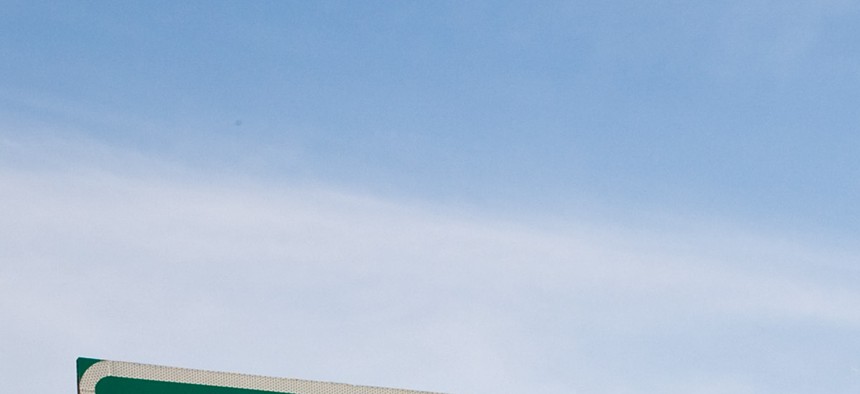Michigan Suburb Blocks Street on Detroit Border

Shutterstock

Connecting state and local government leaders
Grosse Pointe Park’s traffic-calming blockade raises boundary questions and stirs cross-border tensions.
Alter Road has always been a dividing line. It’s where the Michigan cities of Detroit and Grosse Pointe Park meet — or nearly meet. It’s not as well-known as Eight Mile Road, but Alter is a stark socioeconomic dividing line between the poverty, vacant lots and blight that’s common in Detroit and the wealth, suburban comforts and well-tended properties of the Grosse Pointe Park and beyond it, the city of Grosse Pointe, Grosse Pointe Farms, Grosse Pointe Shores and Grosse Pointe Woods.

This USGS map from 1983 shows the border running just to the east of Alter and technically, the Grosse Point Park boundary mostly follows an alleyway a half block east of Alter.
But at Kercheval Avenue, a thoroughfare connecting Detroit’s East Side with three of the Grosse Pointes, Detroit’s border briefly jogs over to the next street. This map, showing the ZIP code boundary between Detroit and Grosse Pointe Park shows the difference in the border's path at Kercheval:

And it’s in this border anomaly, which appears to be under the jurisdiction of Detroit, where the city of Grosse Pointe Park has constructed a giant barn and reconfigured the street infrastructure in recent weeks in a way that has now blocked the through route of Kercheval.
The barn and the street reconfiguration is part of Grosse Pointe Park’s overall plan to create a revitalized public space on that section of Kercheval anchored by an expanded farmers market and new retail.
But was the plan meant to close off access at the city limits?
WATCH: WDIV-TV on Grosse Pointe Park's closure of Kercheval Avenue.
Grosse Pointe Park’s mayor pro tem, Gregory Theokas, has denied accusations that the road closure was created to keep Detroiters out.
"No, it's designed to create a space where there can be foot traffic so that we can close it off during the weekend and holidays, and have an open-air area," Theokas told Detroit’s WDIV-TV in late June.
But it’s the fourth-such traffic barrier constructed along the Grosse Pointe Park-Detroit border according to independent Detroit news site Motor City Muckracker, which stirred up additional long-standing cross-border tensions this week by suggesting that Grosse Pointe Park didn’t actually have the authority to close off that section of Kercheval because adjacent properties along that section of the roadway actually are in the Detroit-administered border anomaly, which is confirmed by some government maps and tax records.
According to Motor City Muckracker:
Grosse Pointe Park’s charter does not account for the anomalies.
So what does this mean for the farmer’s market? It may depend on whether the city of Detroit challenges the blockade.
Mayor Duggan, who has managed to avoid controversy during his first year so far, is withholding comment until the completion of a city investigation.
Street closures in the Detroit area can be a touchy subject. In Palmer Woods, one of Detroit’s most desired residential neighborhoods, some through streets have been blocked off to cut down on drivers speeding drivers through residential areas.
As the Detroit Free Press reported last July:
Terms like “gated community” and “traffic barricade” can evoke bitter memories of Detroit’s former racial divides. In six years of planning, Palmer Woods leaders took pains to call their effort “traffic calming,” not aimed at keeping out crime or undesirable motorists.
The Free Press noted that Grosse Pointe Park officials previously argued that blocking Kercheval is not unprecedented. When Chrysler’s Jefferson North Assembly Plant opened on Detroit’s East Side in 1991, it allowed the auto company to close Kercheval through the manufacturing site.
(Top image via James Marvin Phelps/Shutterstock.com; first map via U.S. Geological Survey; second map via James GrabMaps/Shutterstock.com)
NEXT STORY: Six Californias, One Super City-State





